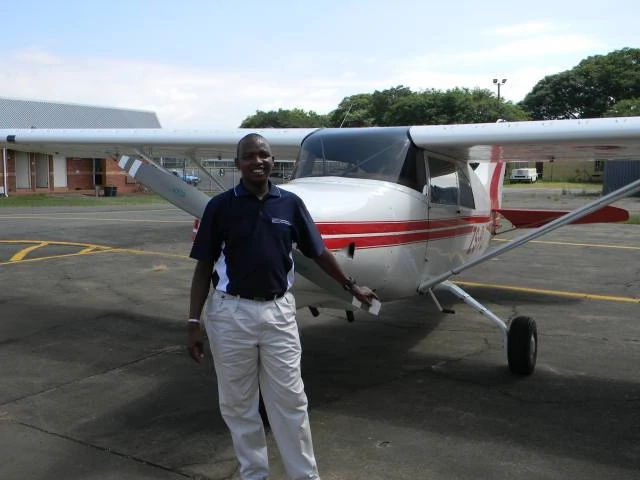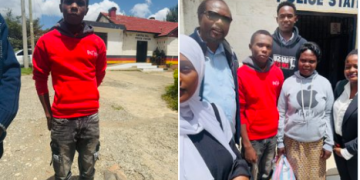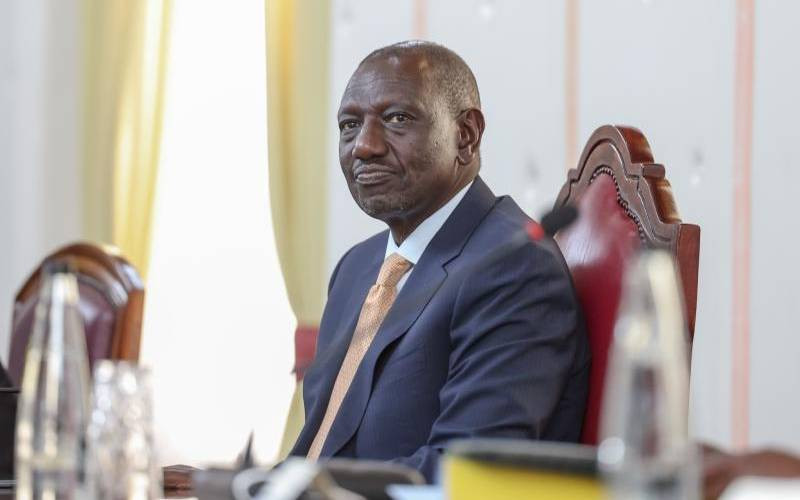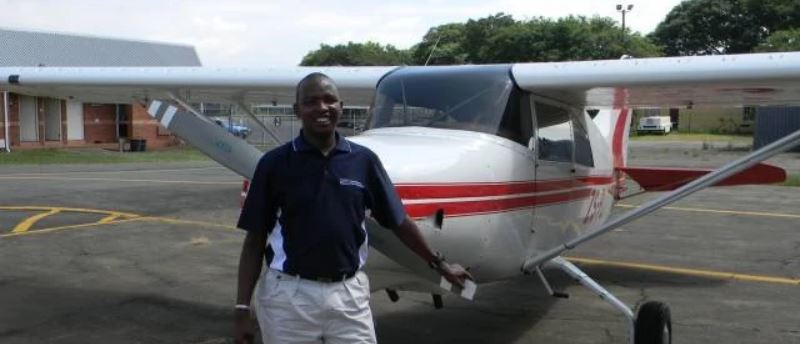The 46 year old John Pameri is a certified pilot as well as the head of security at the Lewa Wildlife Conservancy.
Despite dropping out of school in Class 8, he never lost sight of his goal: to care for wildlife.
Pameri shared his incredible journey from a child clinging to a dream to obtaining a pilot’s license in his quest to raise awareness and conserve endangered species with Citizen TV.
Imagine walking over 100 kilometres to follow your passion?
According to John, he trekked to Lewa Conservancy as a teenager with a dream.
Having dropped out of school after finishing his primary education in 1990 due to lack of school fees, he wanted a job that would also enable him to care for wildlife.

He began his career as a ranger and has worked his way up to become the Head of Security at the conservancy.
Lewa also sponsored him to go to South Africa to get a Private Pilot License from.
“I don’t have university papers, I don’t have secondary school papers but I managed to do everything,” he said while encouraging young people to chase their dreams
One of his recruitment tests to become a ranger included running for 20 kilometers, and carrying posts to test his attitude and physical capability.
He was later trained on mastering the use of firearms. John then rose through the ranks to become an assistant in charge of security by 1996.
He’s training began at the Pietermaritzburg Flight Training Center in South Africa with his first solo flight being in February 2012.
“The community is really proud of me, you know, seeing my life, how I’ve really grown up,” he said in an interview with Citizen TV.
“I’ve been to a lot of trips to New York doing conferences, meetings and fundraisers,” he added.
As Head of Security, Pameri is in charge of 87 staff, including field rangers whose work involves security operations, wildlife management and managing human-wildlife conflict.

He has been awarded for his critical role in helping spearhead development across Lewa’s neighboring area.
The major human-wildlife conflict types in Kenya are crop raiding, attacks on humans, livestock depredation, and property damage.
Such conflicts have negative impacts on the livelihoods of people, who often respond by killing wildlife involved in the conflict.
Because of this, human-wildlife conflicts threaten biodiversity conservation and may lead to local extinction of some species.








































